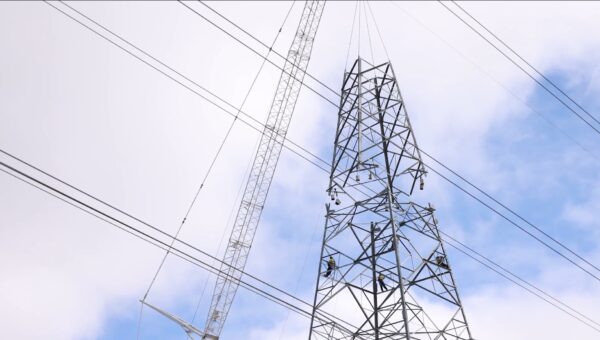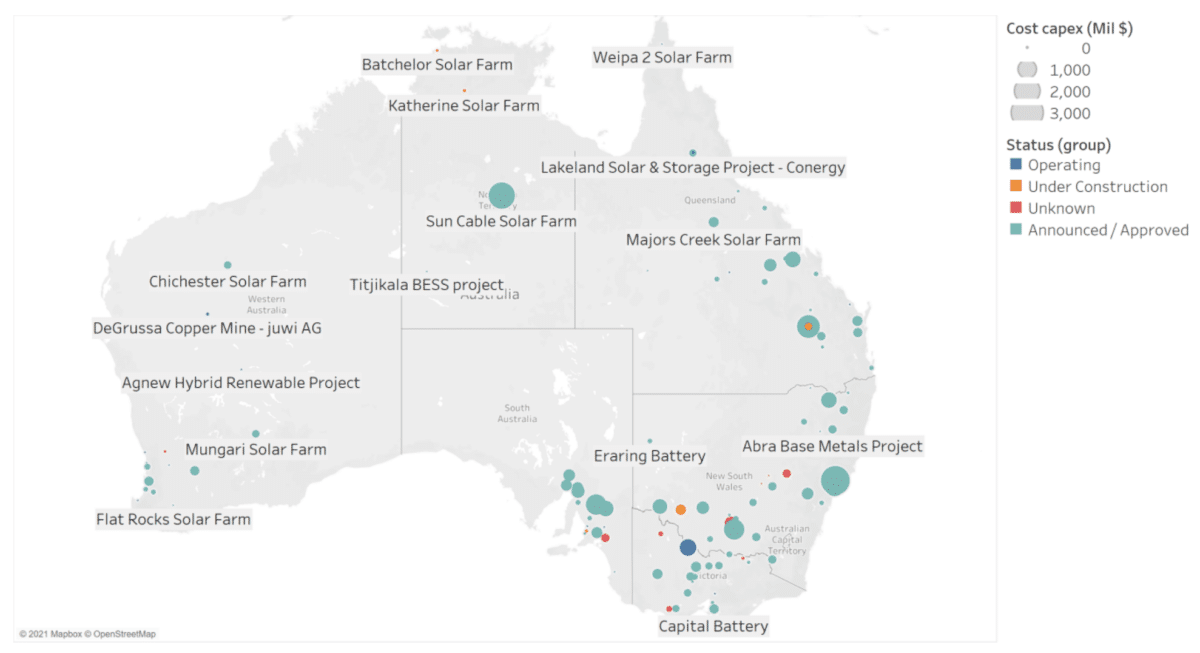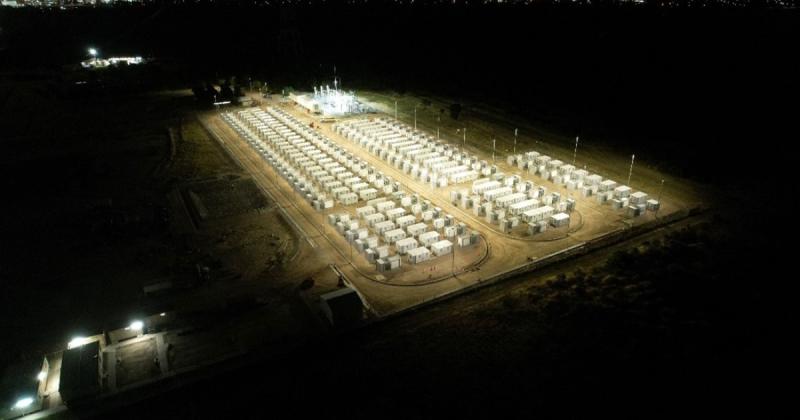In 2015, Sunwiz founder and managing director Warwick Johnston warned large-scale solar developers that rooftop installations would end up eating their lunch. “Now what I see is more nuanced and circular than that – renewables will eat itself,” he tells pv magazine Australia.
“Transmission takes a long time to built… while you’re waiting for that transmission, there will be volatile and higher electricity prices. The natural response to that will be to install rooftop PV or install storage, potentially local storage, potentially local transmission-enhancing storage, all that sort of stuff.”
“Batteries will get done quicker than transmission, so they will erode the business case for transmission. But the transmission will get built anyway, and that will erode the business case for batteries.”

Image: CPB Contractors
While this business case conundrum most pointedly impacts big battery projects, which earn most of their revenue from spot markets, distributed energy resources like rooftop solar and network batteries will continue to utterly transform energy systems.
In April, Dr Gabrielle Kuiper, a director of the Superpower Institute, pointed to ITP Renewables modelling which found that when Australia eventually reaches its saturation point with distributed energy resources, there exists a pathway in which rooftop solar plus battery trading will cut the wholesale market’s evening peak by 67–92%.
The demand forecasts which have underpinned much of Australia’s transition modelling to date are increasingly being questioned, given the fact models – as Kuiper points out – have the shortfall of relying on a past which is likely completely different to the energy future.
Johnston describes the assumption that Australia should be building copious amounts of transmission as something that has remained, until vey recently, “unexamined.” A growing choir of industry insiders are questioning whether the current extent of planned transmission projects are in fact vital, but this is also a relatively recent shift.

Image: SunWiz/ Simply Energy
Johnston notes that in the same way rooftop solar undercut legacy energy monopolies, batteries will undercut Australia’s state-based transmission network service provider (TNSP) monopolies.
While transmission does “achieve more efficient outcomes” as Johnston puts it, he says, “we certainly don’t want to wait for that to happen before we start building [renewables] out.”
After the widespread glee around Australia’s emergence from a decade of inaction in 2022, this year has seen industry and governments reckon with the deep complexity of the task before us.
“There’s just going to be a bit of chaos and carnage along the way, from my perspective,” Johnston says.
“Everyone is going to be affected in some way. We’re going to have to transition from the current way we price energy for new market design,” he adds. Consumers are somewhat insulated from volatile wholesale market prices, “but network prices probably need to evolve both in terms of time-of-use pricing but also local system services pricing,” he says.
“Basically there is going to be a whole heap price volatility, there’s going to be some regulatory changes that come along and all of this will create some winners and losers. And there will be people who are winners at some time and losers at other times – that’s part of it.”
“It starts to be like riding the sharemarket a bit where you don’t really have much influence over it. You’re riding it, but it’s not like you can pull out of it very easily.”
Of course, fossil generation is going to be completely hallowed out in this process – something already well underway, Warwick notes.
Coming back to the tension between batteries and transmission, Johnston says, “once you go through that and get to the other end you go, ‘oh well we need it all.’”
“This is an ultimately painful stepping stone from an energy system that was as it was to something with zero marginal cost power.”
This content is protected by copyright and may not be reused. If you want to cooperate with us and would like to reuse some of our content, please contact: editors@pv-magazine.com.









2 comments
By submitting this form you agree to pv magazine using your data for the purposes of publishing your comment.
Your personal data will only be disclosed or otherwise transmitted to third parties for the purposes of spam filtering or if this is necessary for technical maintenance of the website. Any other transfer to third parties will not take place unless this is justified on the basis of applicable data protection regulations or if pv magazine is legally obliged to do so.
You may revoke this consent at any time with effect for the future, in which case your personal data will be deleted immediately. Otherwise, your data will be deleted if pv magazine has processed your request or the purpose of data storage is fulfilled.
Further information on data privacy can be found in our Data Protection Policy.